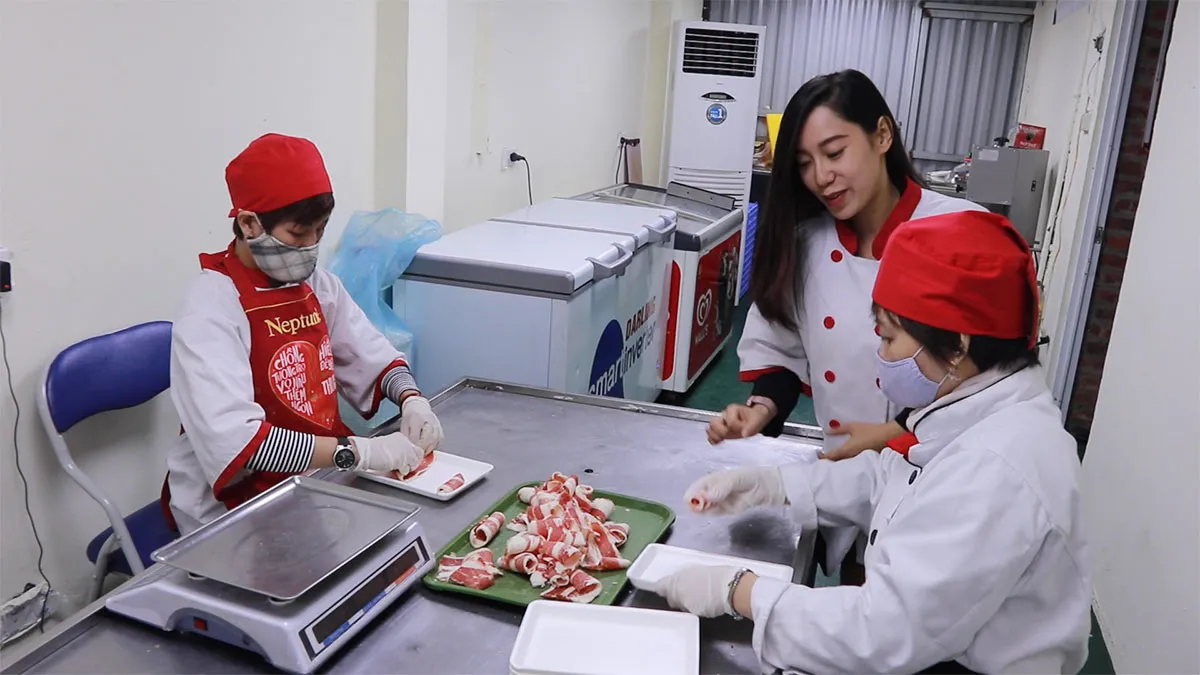Tran Quynh Anh has been running her food import business, Ifoods, for the past three years, employing 30 staff. She imports from across the world and her products range from American and Australian beef to Norwegian salmon, reaching both wholesale and retail markets.
Starting out in business was not always easy due to the social expectations placed on her by her family. “My parents did not support their daughter taking part in the business world,” she says. Anh also had to overcome a shortage of capital and a lack of management and operational skills.
What Anh lacked in finance or management skills, she made up for with passion. “Women may not have physical strength like men, but we do have passion for work and business,” she says. “With our passion, we can overcome all barriers.”
“My ambition is to develop a mobile application for sales.”
Female entrepreneurship is on the rise in Vietnam, with 27% of businesses owned by women. Vietnam is also one of only three countries out of 54 surveyed where there are higher entrepreneurial rates among women than men – 25% versus 22%. However, entrepreneurs – especially women – remain unserved or underserved by financial and non-financial service providers, and Anh is no exception.
While Anh has developed her skills over the past three years, she is still eager to develop them further. “I need to develop my management and operation skills, such as supply chain management.”
Through CARE’s Ignite program, supported by the Mastercard Center for Inclusive Growth, Anh and many other Vietnamese entrepreneurs like her, will have new opportunities to grow their companies. By partnering with commercial bank VPBank, the Women’s Initiative for Start-ups and Entrepreneurship (WISE) and fintech Canal Circle, CARE Vietnam will be able to open up much-needed access to finance, technology and networks and builds entrepreneurship capacity and skills. Anh adds, “with CARE’s support I hope to be able to expand my network and reach larger enterprises that I can learn from.”
Anh is less interested in discussing her own personal business success, talking warmly about her staff. “My biggest achievement is making my staff feel happy. We live like a family here.”
As with all small businesses, the COVID-19 pandemic has impacted Anh, although perhaps less so than other businesses as she is trading in food – an essential product. “We faced some difficulties with customers not repaying their debts, as restaurants and food shops had to close for quite a long time,” she notes. Anh also had to switch her supplier to a larger domestic importer to ensure she had enough product. “Imported products were getting stuck or were shipping much more slowly than usual.”
Recognizing the need to grow online sales in the face of the pandemic, next on Anh’s list is the development of an App for the business, adding, “my ambition is to develop a mobile application for sales. Products offered through the App will not only include fresh products, but also cooked food and many other diverse products and services.”


